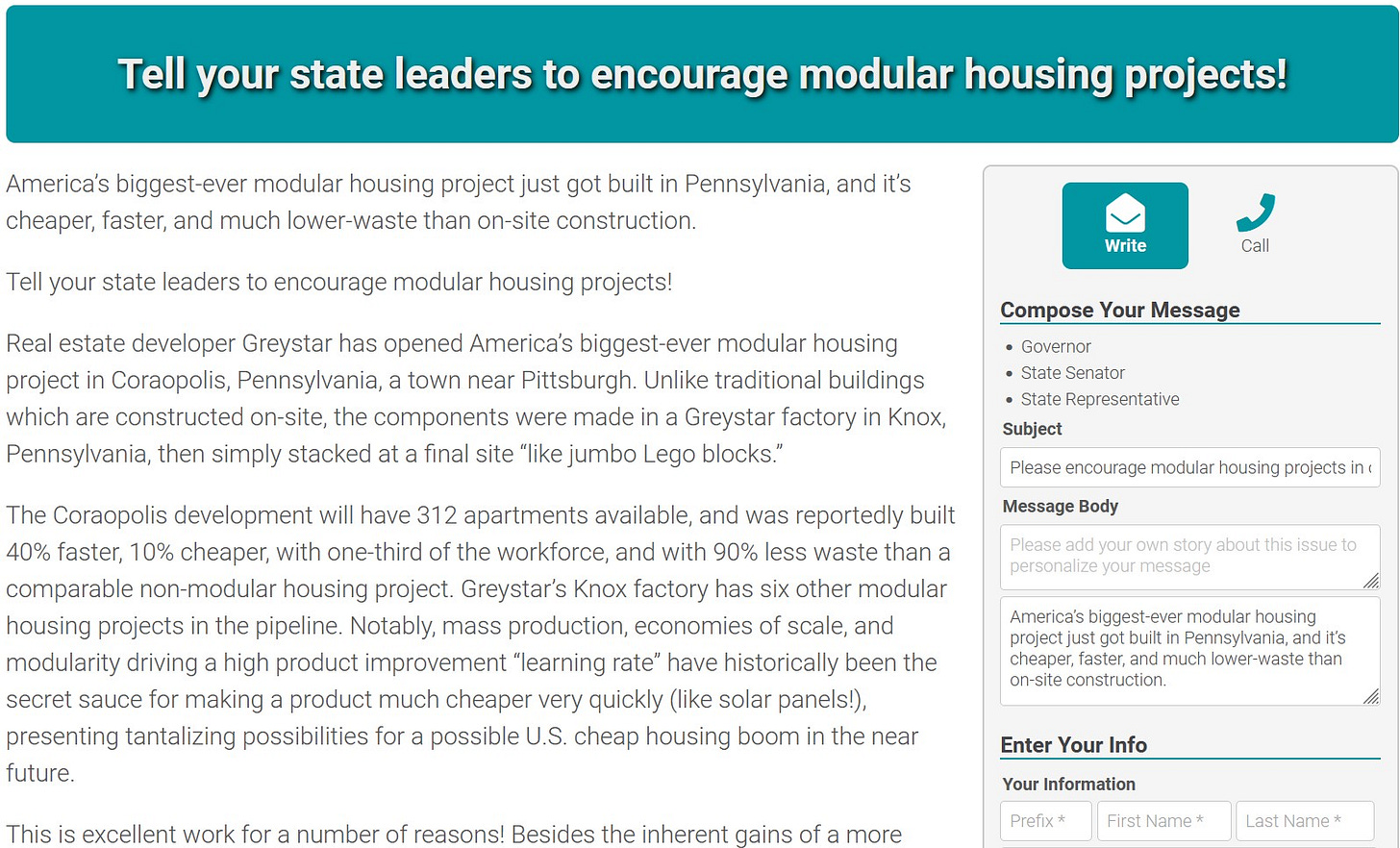Your Daily Dose of Climate Hope: December 31, 2024
America's biggest-ever modular housing project!
America’s biggest-ever modular housing project just got built in Pennsylvania, and it’s cheaper, faster, and much lower-waste than on-site construction.
Tell your state leaders to encourage modular housing projects!
Touch or scan the QR code below to take today’s action in the app and earn trees!
Or take action on the Internet – no app required!
Reasons For Hope
Real estate developer Greystar has opened America’s biggest-ever modular housing project in Coraopolis, Pennsylvania, a town near Pittsburgh. Unlike traditional buildings which are constructed on-site, the components were made in a Greystar factory in Knox, Pennsylvania, then simply stacked at a final site “like jumbo Lego blocks.”
The Coraopolis development will have 312 apartments available, and was reportedly built 40% faster, 10% cheaper, with one-third of the workforce, and with 90% less waste than a comparable non-modular housing project. Greystar’s Knox factory has six other modular housing projects in the pipeline. Notably, mass production, economies of scale, and modularity driving a high product improvement “learning rate” have historically been the secret sauce for making a product much cheaper very quickly (like solar panels!), presenting tantalizing possibilities for a possible U.S. cheap housing boom in the near future.
This is excellent work for a number of reasons! Besides the inherent gains of a more efficient process, making more housing available has a wide range of positive societal effects (as discussed in the landmark Works in Progress article “The housing theory of everything,”) including family formation and emissions reduction.
The major remaining speed bumps slowing the spread of modular housing are regulatory and legal hurdles. There doesn’t appear to be much opposition to modular housing per se, it’s just so new that there’s no process to approve it yet. Building codes were generally written with the unspoken basic assumption that all construction would take place on-site, making it extremely difficult to legally build modular housing in many jurisdictions. Policy makers should know that their constituents support accelerating this win-win innovation with a supportive regulatory structure.







I'm not sure I'm a fan of modular housing. I'm glad they're giving it a try, but let's see how it works out for the people that live there. can you remodel? Can you repair? Also, I would like to see the studies that show savings in resources and reduced environmental impact.